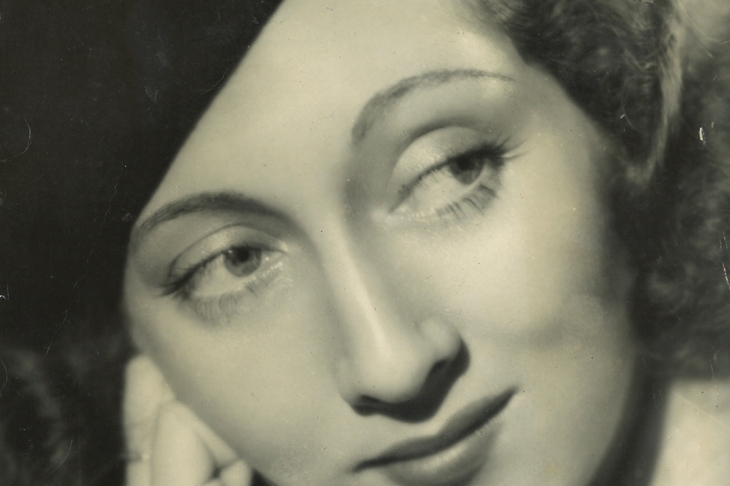Anita Leslie knew how to tell a story. Arranging to sit for a portrait six months before she died, she planned to borrow a khaki shirt on which to pin her second world war decorations, the Africa Star and the Croix de Guerre. The portrait was never commissioned, but it is clear that Leslie — the only woman to have been awarded both these honours — wanted to be remembered as a war heroine, as well as a biographer, memoirist, witty and well-connected socialite, and cousin of Winston Churchill. Leslie’s war work certainly merits greater attention, so it is a shame that Penny Perrick’s Telling Tales: The Fabulous Lives of Anita Leslie focuses so much more on the ‘low-down on the high-ups’ than her subject’s actions on the front line.
Born in 1914, Leslie endured a ‘privileged but unpleasant’ childhood. With her upper-class Anglo-Irish parents focused on their own lives, she quickly grew to associate happiness with the freedom she found at the family estate, Castle Leslie, and misery with her series of boarding schools. Never comfortable among ‘intellectuals’, she would always prefer ‘empty-headed but amusing quality folk’. This is a book peopled by horsey young men, and women with names like Winifred ‘Pooh’ Paget, all looking charming, writing amusing letters, avoiding taxes and enjoying bedroom-hopping ‘roguey-poguey’.
Mainly to annoy her mother, in 1937 Leslie married Colonel Paul Rodzianko, a once-wealthy nobleman 30 years her senior, dispossessed by the Russian revolution. Rodzianko, who had identified the remains of Tsar Nicholas II’s pet dog by its bloodstained collar at Ekaterinburg, was a brilliant riding instructor and could slice off champagne corks with his sword. He was also violent, demanding and deeply anti-Semitic — a trait, Perrick writes, that he ‘transferred to his young wife’.








Comments
Join the debate for just £1 a month
Be part of the conversation with other Spectator readers by getting your first three months for £3.
UNLOCK ACCESS Just £1 a monthAlready a subscriber? Log in